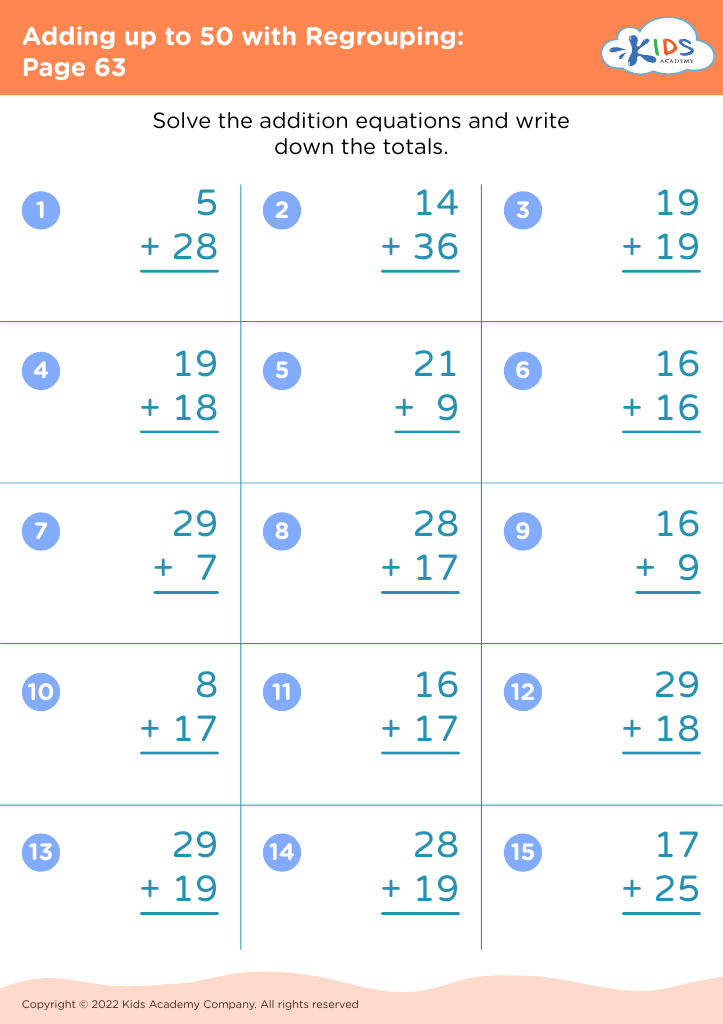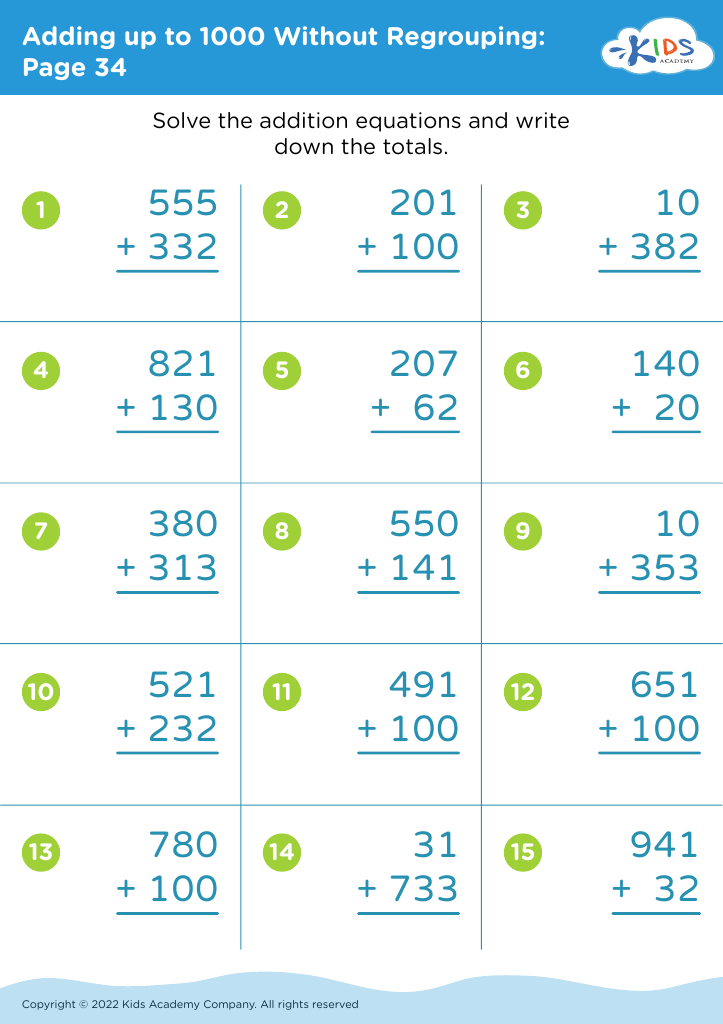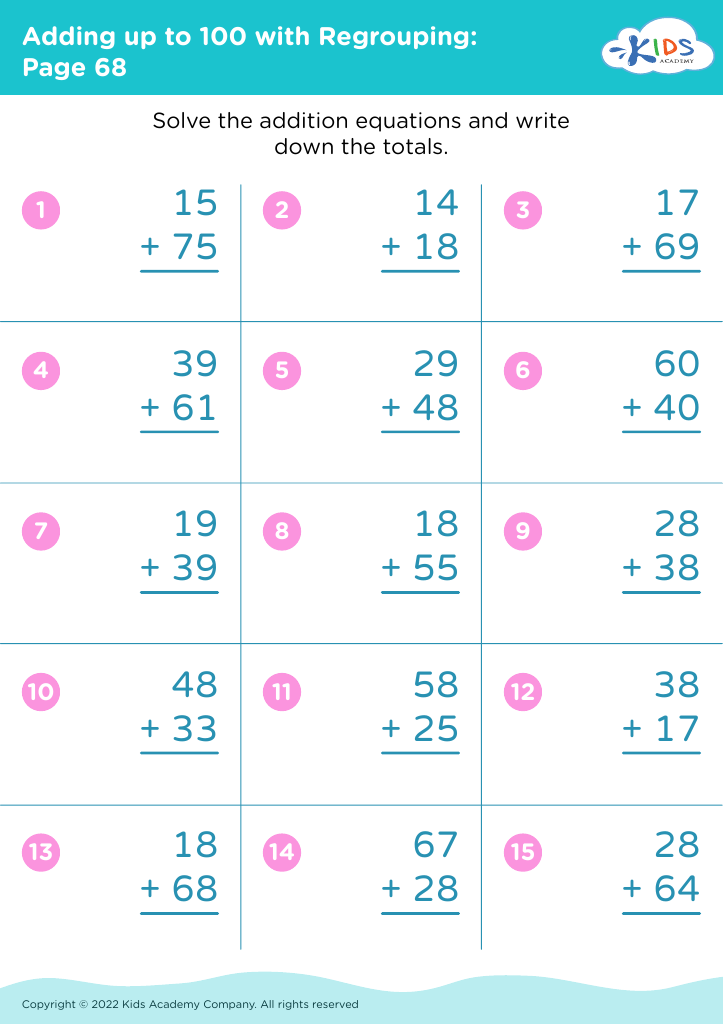Understand subtraction Addition & Subtraction Worksheets for Ages 3-8
6 filtered results
-
From - To
Introduce your child to the fundamental concepts of subtraction with our engaging Addition & Subtraction Worksheets for Ages 3-8. Our beautifully designed, age-appropriate worksheets help kids grasp the basics of subtracting in an enjoyable way. Featuring vibrant visuals and interactive exercises, these printables encourage young learners to practice their math skills and develop a deep understanding of subtraction. Perfect for home or classroom use, these resources foster confidence in mathematics, making learning both effective and fun. Equip your little one with the tools they need to succeed in math with Kids Academy’s free subtraction worksheets today!
Parents and teachers should deeply care about helping children understand subtraction and addition from an early age for several crucial reasons. First, the foundational skills learned during ages 3-8 form the bedrock upon which future mathematical concepts are built. Mastering the basic operations of addition and subtraction is essential for tackling more complex math problems later on, such as multiplication, division, and algebra.
Moreover, early proficiency in these skills also boosts cognitive development. Working with numbers enhances logical thinking, problem-solving abilities, and even memory retention. When children repeatedly practice addition and subtraction, they develop strong neural pathways that facilitate easier and quicker learning in a variety of subjects, including science, technology, and even the arts.
Additionally, confidence in math has far-reaching emotional and psychological benefits. Children who feel competent in math are more likely to view themselves as capable learners, fostering a growth mindset. This self-assurance is crucial not just for academic success but also for lifelong learning and adaptability.
Furthermore, early success in math sets a positive attitude towards the subject, diminishing anxiety and resistance as students face more challenging topics. Parents and teachers can thus instill a love for learning and numeracy by prioritizing the comprehension of these basic arithmetic operations, ensuring a well-rounded, confident, and capable generation.























